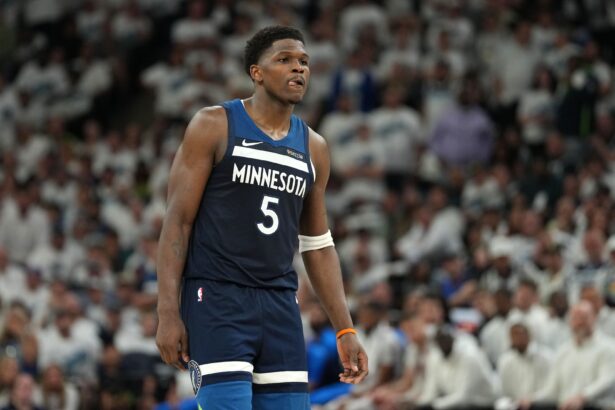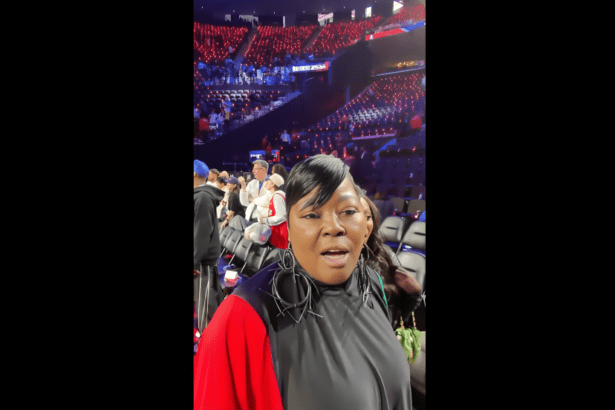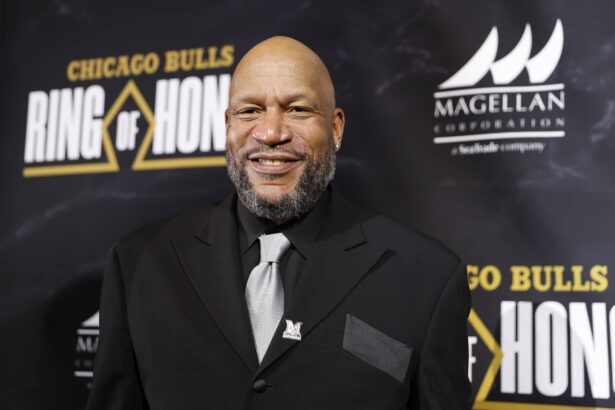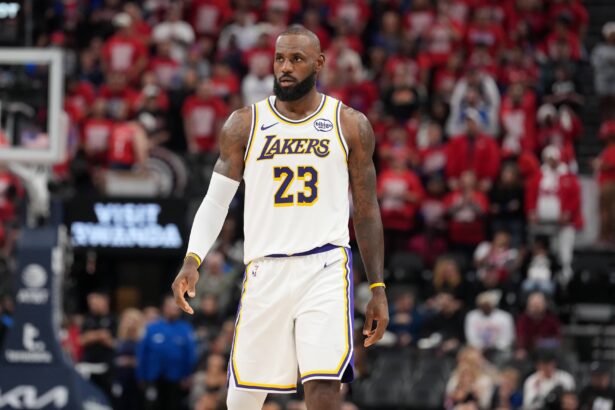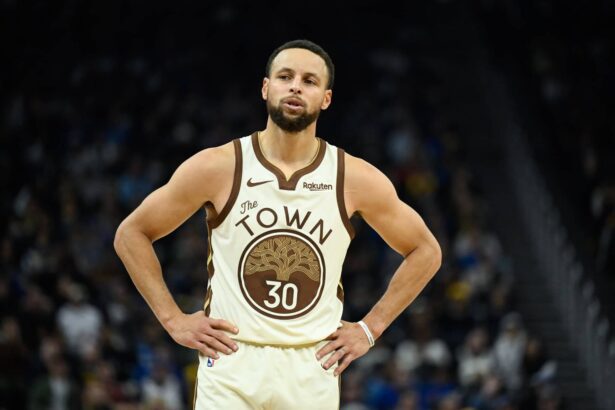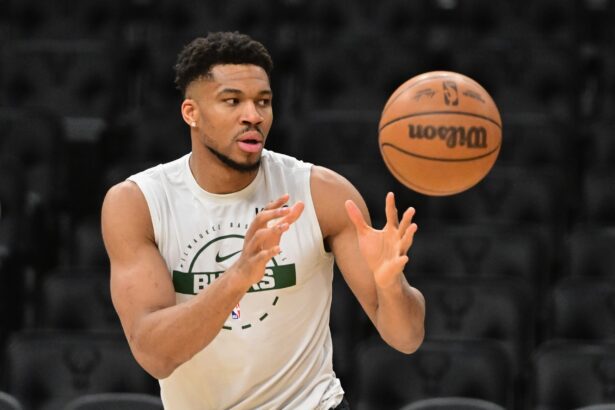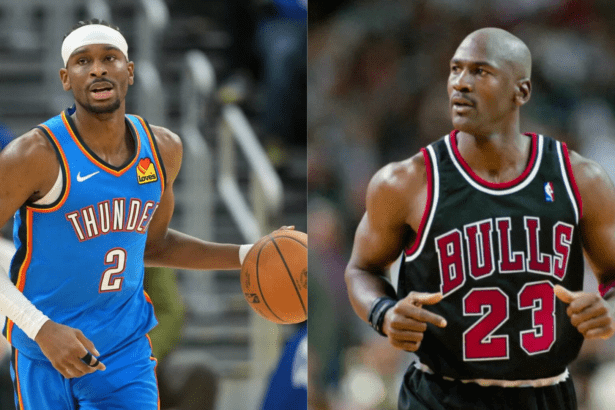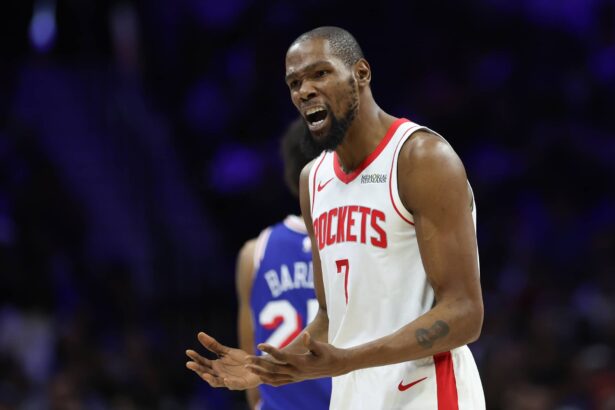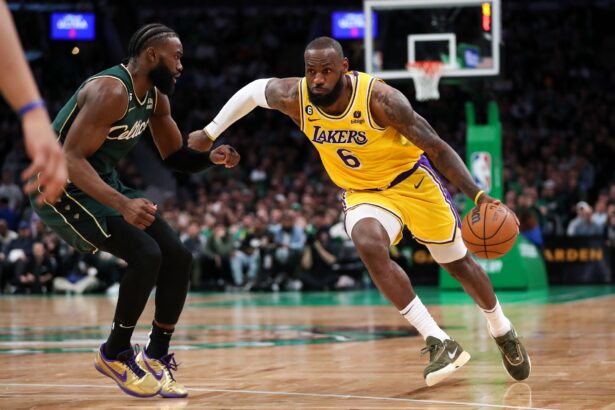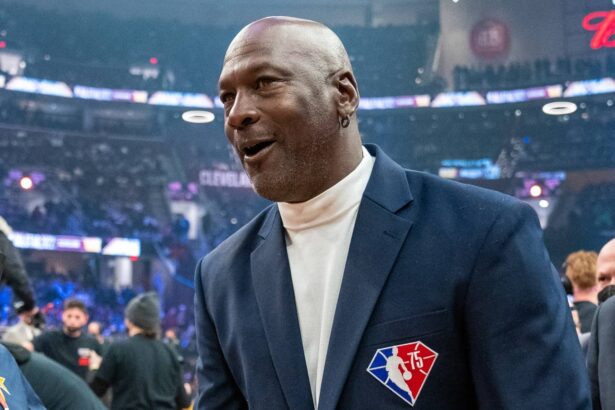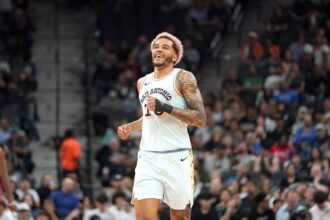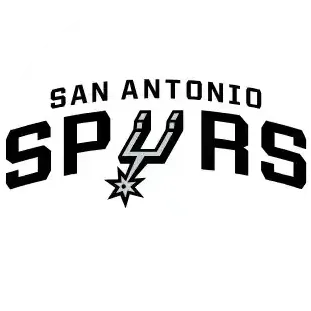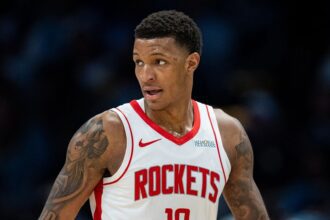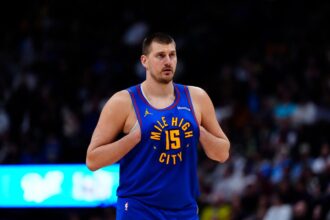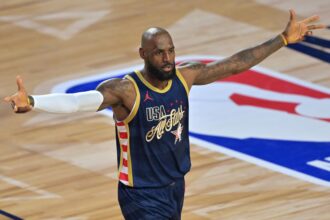The point guards in the NBA these days are required to do a lot on the floor, as teams are focusing on efficient ways of scoring a ton of points and using their point guards to accomplish that. Since they are the players bringing the ball up the floor most of the time and leading the offense as a direct extension of the coach, a great point guard can make your team just as a bad point guard can hurt your team. Of course, we have some of the most spectacular offensive players in the game today including Stephen Curry, Ja Morant, and Trae Young playing at MVP levels at the point guard position. For the best point guards, winning scoring titles, assist titles, or even leading a team to strong records year after year comes naturally to them because of how effortlessly they control the game.
- 1975-76 Finals MVP – Jo Jo White
- 1979-80 Finals MVP – Magic Johnson
- 1981-82 Finals MVP – Magic Johnson
- 1986-87 Finals MVP – Magic Johnson
- 1989-90 Finals MVP – Isiah Thomas
- 2003-04 Finals MVP – Chauncey Billups
- 2006-07 Finals MVP – Tony Parker
- 2021-22 Finals MVP – Stephen Curry
- Next
- Magic Johnsons’ Career Record vs. NBA Legends: Only Michael Jordan And Scottie Pippen Won Their Head-To-Head Matchups Against Magic
- Isiah Thomas’ Career Record vs. NBA Legends: He Leads Against Michael Jordan, But Larry Bird Was His Kryptonite
- NBA MVP Award Winners Per Position: Centers Have Historically Been More Valuable Than Guards And Forwards
Throughout history, we have seen the point guard’s role slightly change as time has gone by, mainly from being a pass-heavy player to a man who can often be the leading scorer on his team. Thanks to the new wave of incredible athletes and skilled players at the point guard spot, some of the best offensive players are often the primary ball-handlers. While point guards are still required to lead the offense, gone are the days when being pass-first is the priority. That still does not take away from a point guard’s role of being an offensive leader and even a vocal presence for a team. That is why some point guards in NBA history have managed to lead a team to the NBA Finals and actually get the job done as Finals MVPs.
Looking back at the very start of the NBA until the 2022 season, here are the Finals MVP winners at the point guard position. Only one name will appear more than once, and some other players managed to take their teams to an entirely different level by dominating the court during the NBA Finals in a particular year. Without further ado, here is every Finals MVP award winner at the point guard spot in NBA history.
1975-76 Finals MVP – Jo Jo White
Finals Statistics: 21.7 PPG, 4.3 RPG, 5.8 APG, 1.5 SPG, 0.0 BPG
Jo Jo White won Finals MVP in the 1976 NBA Finals, leading the historically great Boston Celtics to a championship victory over 6 games. White posted 21.7 PPG, 4.3 RPG, and 5.8 APG which overcame Alvan Adams (23.0 PPG, 10.2 RPG, 4.7 APG), Paul Westphal (20.8 PPG, 4.8 APG), and the rest of the Phoenix Suns. Jo Jo also had his own help in the form of Dave Cowens (20.5 PPG, 16.3 RPG), and John Havlicek (15.5 PPG, 5.5 RPG) which is why his team ended up with the victory.
But White was the man over the 6 games, and he was the best player for a team that delivered the 13th championship for the Boston Celtics. He scored 130 total points in the series, capping it off with a 15-point display in the close-out Game 6. Thanks to a balanced effort by the entire Celtics team, the championship was won thanks to an 87-80 victory. As the team’s leading scorer, White certainly had his impact felt.
Jo Jo played the most minutes on the Celtics team, posting 46.5 MPG and also nailing 43.9% from the field and 87.8% from the line. Thanks to White’s efficiency as a scorer and the biggest threat on the floor for the Celtics, he became one of the only seven players who ever won the coveted Finals MVP award.
1979-80 Finals MVP – Magic Johnson
https://www.youtube.com/watch?v=H906s1BZu-Y
Finals Statistics: 21.5 PPG, 11.2 RPG, 8.7 APG, 2.7 SPG, 0.3 BPG
Easily the greatest point guard in NBA history, Magic Johnson won three MVPs and three Finals MVPs with the Lakers. Thanks to his incredible size at his position and excellent all-around game, the legendary Lakers guard dominated the court with floor leadership and offensive brilliance. We have yet to see a point guard control the pace of games better than Magic, and his accomplishments are truly extraordinary. The one that stands out most might be his rookie season where Magic won Finals MVP and captured the NBA title. That came during the iconic 1979-80 season when the Lakers defeated the Philadelphia 76ers in 6 games.
Magic won his first Finals MVP in 1980, averaging 21.5 PPG, 11.2 RPG, and 8.7 APG. Magic and the Lakers completed a sensational 6-game victory after Kareem Abdul-Jabbar would miss Game 6 despite putting up 33.4 PPG, 13.6 RPG, and 4.6 BPG. With Kareem out, Magic started at center as a rookie and won the series which earned him Finals MVP. That was truly an iconic performance because stepping in for arguably the greatest center of all time in a rookie season is something that should never happen. But Magic was skilled and tough enough to do it, and do it effectively.
Magic’s Game 6 was one for the ages because, in place of Kareem, he dropped a monster 42-points, 15 rebounds, and 7 assists on 60.9% shooting from the field and 100% from the foul line. That kind of performance is truly once-in-a-lifetime, and we have yet to see a better closeout performance from a point guard. Johnson had enough maturity and understanding of the basketball game to literally carry his side to a championship during the NBA Finals. Magic was supposed to let Kareem lead the way, and when the big man was out with an injury, he stepped in and did enough to gift the Lakers the championship.
1981-82 Finals MVP – Magic Johnson
https://www.youtube.com/watch?v=H906s1BZu-Y
Finals Statistics: 16.2 PPG, 10.8 RPG, 8.0 APG, 2.5 SPG, 0.3 BPG
For the second time in his career, Magic Johnson won the Finals MVP award with the Los Angeles Lakers after guiding his side past the Philadelphia 76ers in a 6-game series in the 1982 NBA Finals. Johnson poured in 16.2 PPG and 10.8 RPG in the series, once again taking over a Finals series by being the best playmaker and leader on the court. Even if Magic was outscored over the six games by Jamaal Wilkes, Kareem Abdul-Jabbar, and Bob McAdoo, the point guard was the driving force behind the Finals victory that saw the Lakers go atop of the NBA world once again.
Shooting 53.3% from the field and 84.6% from the foul line while also chipping in 8.0 APG, no player was as dominant as the legendary point guard during the series. All eyes and all the pressure were on the superstar point guard to make the difference in the Finals because the 76ers had star talent in the form of Julius Erving, Andrew Toney, and Maurice Cheeks. But Johnson did enough to make a difference, posting a near triple-double and also coming up big in a closeout Game 6 where the point guard posted a triple-double with 13 points, 13 rebounds, and 13 assists. Clutch Magic Johnson was back with a vengeance in the 1982 season.
Even if the Lakers were considered the favorites at the end of the year, since they finished first in the Western Conference, the team had to get the job done which they did when they swept the Phoenix Suns and San Antonio Spurs en route to a 6-game victory in the NBA Finals. No doubt about it, Johnson’s leadership with the ball in his hands ultimately made the difference. This was a massive victory for Magic and the Lakers because, in the following year, the 76ers acquired Moses Malone to exact revenge and win in the 1983 Finals.
1986-87 Finals MVP – Magic Johnson
https://www.youtube.com/watch?v=ABC66DY_e8o
Finals Statistics: 26.2 PPG, 8.0 RPG, 13.0 APG, 2.3 SPG, 0.3 BPG
It is a fact that no point guard won as many Finals MVPs as Magic, and quite frankly, no point guard has come close to the legend’s dominance as a player. The Lakers then won the 1987 title over the Celtics thanks to their magical point guard, who put up 26.2 PPG, 8.0 RPG, and 13.0 APG in the Finals. Johnson outplayed Larry Bird across from him, and also led his side in points, rebounds, assists, and steals. Johnson had some incredible performances over his postseason career but his 1987 season could be his best ever when looking at the totality of his achievements.
Johnson also won the MVP award during the year, and capping it off with a championship and Finals MVP award is truly one of the best ways to make a mark in history. It was clear that we were seeing the best to ever do it at his position, and he kept making more impressive rounds in the playoffs every few years. The fact that the Lakers also took out a talented Boston Celtics team in the Finals made it all the more sweeter because the rivalry between the two franchises is well documented. It was even more impressive how Johnson outplayed Larry Bird.
Bird did hold his own with averages of 24.2 PPG, 10.0 RPG, 5.2 APG, 1.2 SPG, and 1.2 BPG, but he could not handle the offensive end as efficiently as Magic did with the Lakers. The point guard was simply on another level as a passer and scorer, using his size and skill to control the pace of the series and end it in 6 games. Sure, Johnson had his help through Kareem Abdul-Jabbar (21.7 PPG, 7.3 RPG) and James Worthy (20.7 PPG, 5.3 RPG, 4.0 APG), but the point quart was the undisputed best player in the series and the numbers will back that up. With his third Finals MVP award, Magic was already in a league of his own as an all-time great point guard.
1989-90 Finals MVP – Isiah Thomas
Finals Statistics: 27.6 PPG, 5.2 RPG, 7.0 APG, 1.6 SPG, 0.4 BPG
The great Isiah Thomas put forth splendid performances during the 1990 season, posting monster statistics and leading the Detroit Pistons past the Portland Trail Blazers in the NBA Finals. This marked the second-straight championship for the Pistons, and the team became just the third franchise in NBA history at the time to win back-to-back titles other than the Los Angeles Lakers and Boston Celtics. The Finals victory also marked the first Finals MVP award win for Thomas. The point guard was hell-bent on winning his second title and even managed to outscore Clyde Drexler on the court with an average of 27.6 PPG.
Of course, Thomas did his job as a playmaker as well. He averaged 7.0 APG in the series, which ranked second among all players behind Terry Porter (8.4 APG). Thomas was literally all over the court, doing everything in his power to close out the Trail Blazers in 5 games and ensuring that the team goes home champions. In a closeout Game 5 performance, Thomas dropped 29 points and 5 assists on 65.0% shooting from the field and 100% shooting from three as he went 3-3 from deep. Portland had no answer, and quite frankly, they had no answer for the point guard over the majority of the series.
With the 2nd championship and 1st Finals MVP in his grasp, Isiah Thomas firmly entered the race for being one of the top-five greatest point guards of all time. With Thomas’ ability to slice towards the rim and also score from mid-range, the Trail Blazers had to play him closely or risk the point guard setting up his teammates. Thanks to Thomas’ playmaking, Dumars also had a great series by posting 20.6 PPG following his Finals MVP campaign in 1989. In the end, Thomas and the Pistons were too hungry for the title and the Trail Blazers had to succumb to the eventual champions.
2003-04 Finals MVP – Chauncey Billups
Finals Statistics: 21.0 PPG, 3.2 RPG, 5.2 APG, 1.2 SPG, 0.0 BPG
The 2004 NBA Finals gave us one of the largest upsets in NBA history because a tough yet under-matched Detroit Pistons team found themselves battling the Los Angeles Lakers led by superstars Shaquille O’Neal and Kobe Bryant. To many, this was supposed to end in 4 or 5 games in favor of the Lakers because there was nobody big enough to stop O’Neal in the paint. Multiple-time Defensive Player of the Year winner Ben Wallace was an elite defender, but he only stood 6’9” and gave up at least 2 inches and 85 lbs to the Diesel.
Somehow, the Detroit Pistons got the job done. Well, they did it through elite defensive play on the perimeter and in the post, blitzing the two superstars and forcing them into difficult situations which often led to turnovers or bad passes. Of course, the apparent beef between Kobe and Shaq did not help either, as it was clear that team chemistry was not at its peak during the year. Nonetheless, the Pistons could only control what they had to, and they took care of business against a heavily-favored Lakers team. At the helm of it was none other than Chauncey Billups, one of the better leaders at the point guard spot that we have seen.
Billups was not a superstar by any means in terms of statistical output and scoring ability, but he had a tremendous series by finishing second on his team in scoring behind Richard Hamilton and also leading his side in assists. Chauncey averaged 21.0 PPG and 5.2 APG in the series, also making big shots when needed to continue to pile pressure on the Lakers. Shooting 50.9% from the field, 47.1% from three, and 92.9% from the line, Billups took the best shots available and was the undisputed vocal leader for the team. Deservedly so, Billups ended up taking the Finals MVP trophy home after a 5-game victory in the series.
2006-07 Finals MVP – Tony Parker
Finals Statistics: 24.5 PPG, 5.0 RPG, 3.3 APG, 0.8 SPG, 0.0 BPG
Tony Parker broke through to capture his first Finals MVP award over 4 championship runs with the Spurs in the 2006-07 season. The Frenchman averaged 24.5 PPG and 5.0 RPG, and despite averaging only 3.3 APG, his offensive prowess was enough to get the Spurs past the Cleveland Cavaliers in 4 games. The Cavaliers were led by a superstar in LeBron James and a host of two-way role players including Drew Gooden, Daniel Gibson, and Zydrunas Ilgauskas. But it was clear the Cavaliers were nowhere near as experienced or talented as the San Antonio Spurs, and they lost in a 4-game sweep despite LeBron James averaging 22.0 PPG, 7.0 RPG, and 6.8 APG.
Tony Parker was the main reason why, because his lane penetration sliced the Cavaliers on multiple occasions. The point guard was adept at nailing mid-range shots, getting to the rim for layups, and also making his foul shots. He led the offense that was instructed by legendary coach Gregg Popovich and did a phenomenal job of setting up plays for his side. Of course, it was Parker who was taking the most shots because he took the most shots over the series ahead of Tim Duncan and Manu Ginobili.
Parker also shot an impressive 56.8% from the field, marking his ability to get great shots in the flow of the offense. It took a while for Parker to start impressing coach Popovich enough to give him the reigns to the offense, but it certainly worked in 2007. The Frenchman was incredibly quick and gave the Cavaliers fits during the series, ultimately giving him his first and only Finals MVP award.
2021-22 Finals MVP – Stephen Curry
Finals Statistics: 31.2 PPG, 6.0 RPG, 5.0 APG, 2.0 SPG, 0.2 BPG
Stephen Curry is the most recent inclusion to a rather short list of point guards who managed to win Finals MVP. The legendary point guard already had 3 NBA titles to his name heading into the 2022 NBA Finals, but zero Finals MVP awards to show for it. That was because swingman Andre Iguodala and superstar forward Kevin Durant captured both awards over those three championship runs. As a result, critics of Stephen Curry were coming out of the woodwork year after year with the point guard being unable to position himself to get to the Finals since Kevin Durant parted for Brooklyn in 2020.
But Curry and the Golden State Warriors made it to the Finals again, taking care of business against a rather young and inexperienced Boston Celtics team led by Jayson Tatum and Jaylen Brown. Steph played very well during the series, leading all scorers in PPG and having one of his most efficient series. The point guard would always come through for his side by raining threes whenever the Celtics tried to come back from deficits, and also controlled the pace of the game by his presence.
We saw how many times Celtics players scrambled to stop Curry’s shots and that opened up the floor for other players. But in the end, 4-time NBA champion Stephen Curry got the job done by winning the championship and also capturing his first Finals MVP award. Critics have gone quiet finally, and the point guard can be proud of a resume that also includes 2 MVP awards and 2 scoring titles. No doubt about it, Stephen Curry has started climbing the all-time rankings as the last point guard to win the Finals MVP award.






